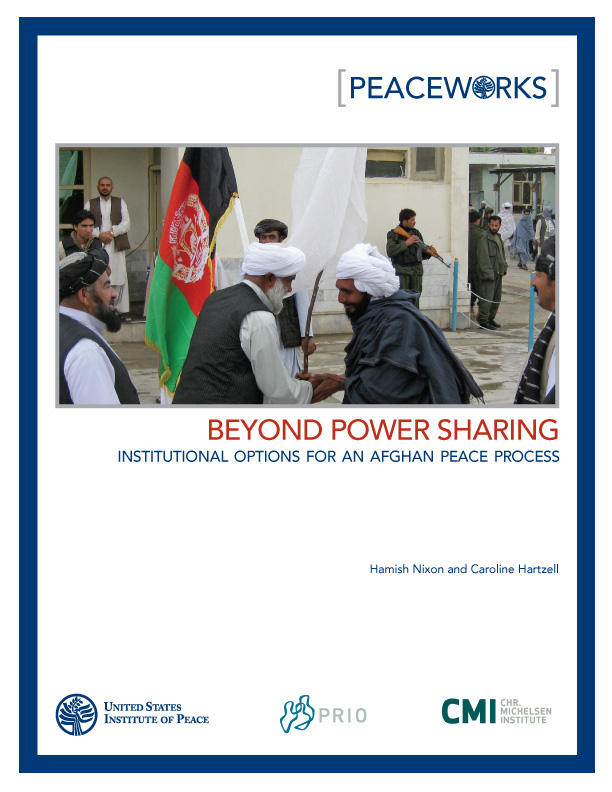Much of the debate about a peace settlement with insurgents in Afghanistan focuses only on political or territorial power sharing. But a successful peace process will require a broader array of measures that allow conflicting parties to share influence and balance that influence with more roles for noncombatants, civilian political actors, and vulnerable groups.

Summary
- While the need for a peace process to end the conflict in Afghanistan becomes clearer with each passing month, there are deep doubts about the chances of achieving a settlement. While the challenges are formidable, they are also potentially surmountable with the right kind of process and settlement.
- All the phases of a peace process are linked. Beginning a process requires more than a conducive military situation; it also calls for potential negotiation scenarios that can generate the confidence to take the initial steps. The kind of negotiation that takes place will influence the comprehensiveness, quality, and therefore sustainability of the outcome.
About the Report
This report, funded by the Royal Norwegian Ministry of Foreign Affairs, is the product of a joint research project of the United States Institute of Peace (USIP), the Peace Research Institute Oslo (PRIO), and the Chr. Michelsen Institute (CMI) to identify issues and options to support durable peace in Afghanistan. Previous publications stemming from the project include several USIP Peace Briefs and two research papers: Hamish Nixon, “Achieving Durable Peace: Afghan Perspectives on a Peace Process” (Oslo: PRIO, May 2011) and Deedee Derksen, “Peace from the Bottom-Up? The Afghanistan Peace and Reintegration Program” (Oslo: PRIO, September 2011).
About the Authors
Hamish Nixon is project coordinator of the joint research project on durable peace in Afghanistan. He spent five years in Afghanistan working on governance with the World Bank and the Afghanistan Research and Evaluation Unit, and has researched peace processes and post-conflict governance in Cambodia, El Salvador, and Afghanistan.
Caroline Hartzell was a 2010–11 Jennings Randolph Senior Fellow at the United States Institute of Peace and is professor of political science at Gettysburg College. She is researching the effects that civil war settlements have on post-conflict economic development, and is coauthor of Crafting Peace: Power-Sharing Institutions and the Negotiated Settlement of Civil Wars (University Park, PA: Pennsylvania State University Press, 2007). The authors would like to thank all those who spoke with them in Afghanistan and colleagues who provided comments on the paper.